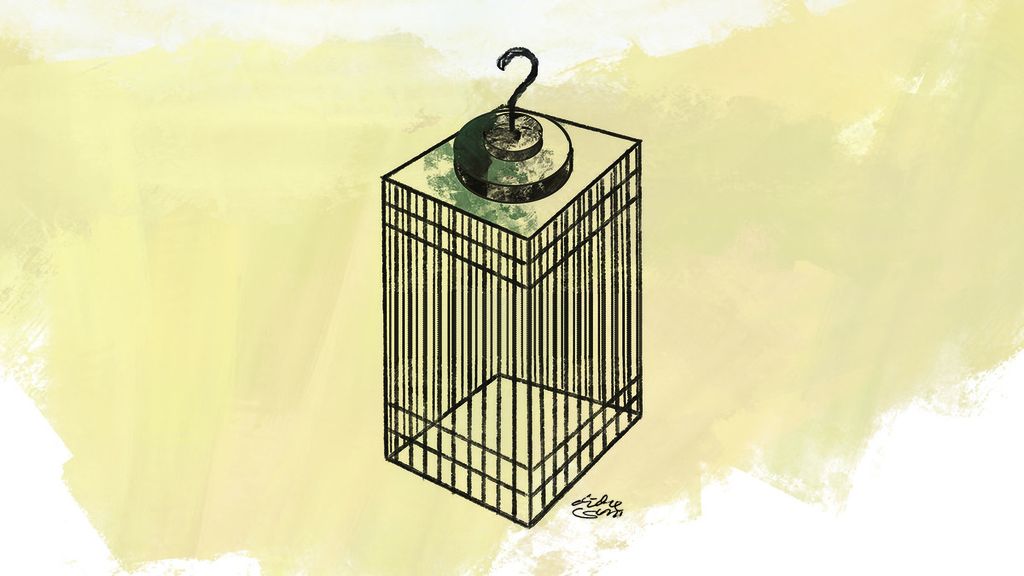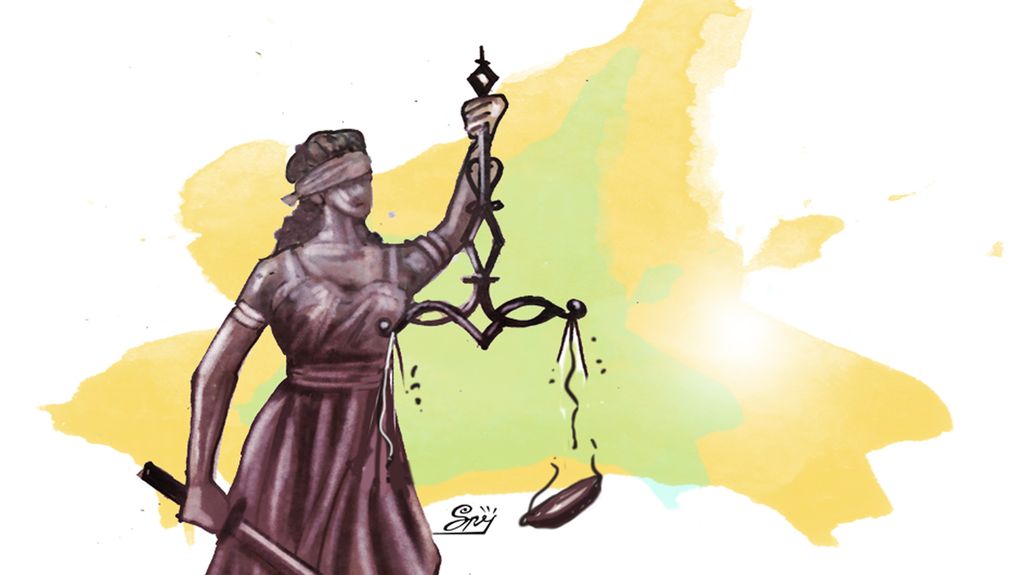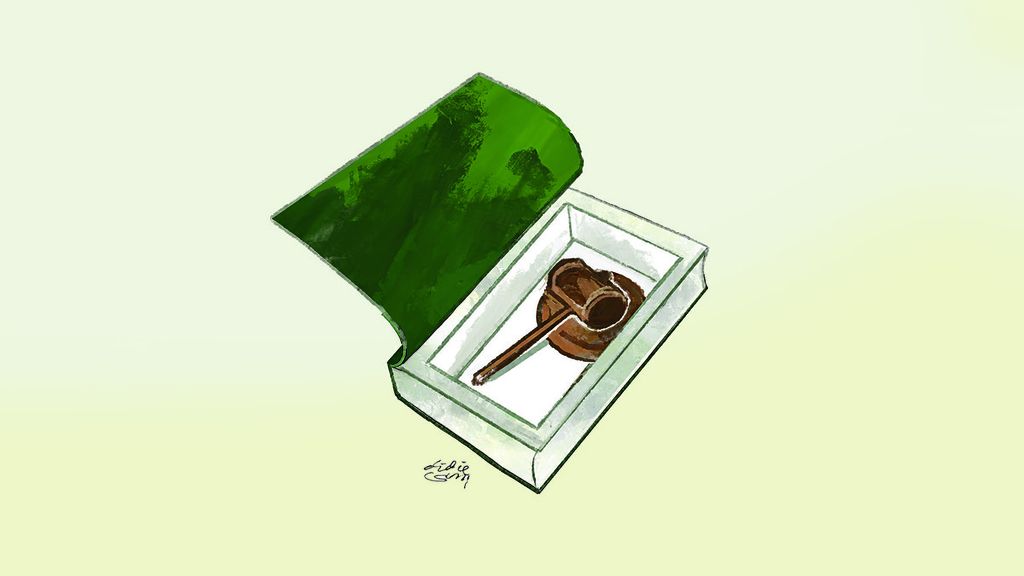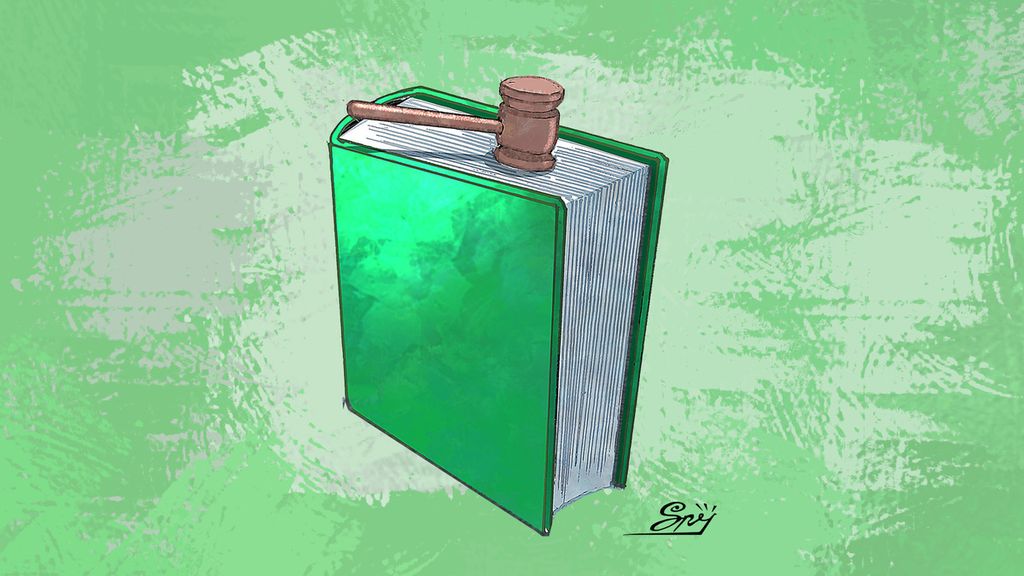Defamation in Criminal Law
In the doctrine of criminal law, defamation generally takes two forms. First, insult. This insult is both verbal and written. To insult means to demean.

The issue related to defamation has again become a controversial issue following the government and House of Representatives (DPR)'s plans to pass the Criminal Code Bill. Actually, the articles on defamation that are being fussed over are old issues that have been explained many times.
During 2021, the government and the DPR conducted socialization in 12 provinces regarding a number of provisions in the Criminal Code Bill (RKUHP), including articles on defamation. Unfortunately, various posters and writings circulating about articles on defamation do not quote the entire article and its explanation.
This seems to be intentional to cause noise and distortion of information to the public. There are also celebrities without a complete understanding of defamation who tend to criticize the articles on TikTok. This op-ed needs to be written so that the public can fully understand defamation in criminal law.
Also read:
> The Problematic Criminal Sanctions in Jobs Law
> Measurable Guidelines Needed for Criminal Law
One philosophical basis for the birth of criminal law, among others, is the function of protection, for the state, society and individuals. One thing that is protected by criminal law is the dignity, reputation and good name. In this context, articles on defamation aimed at the state, society or individuals were created.
In the doctrine of criminal law, defamation generally takes two forms. First, insult. This insult is both verbal and written. To insult means to demean. For example, equating or cursing someone with the name of an animal. Second, slander or laster: accusing someone of committing a disgraceful act or a criminal act, when it turns out that what was alleged could not be proven by the accuser. Included in slander is reporting slanderously and accusing slanderously.
Reason for defending
For Indonesia, these defamation articles are still maintained on the grounds that, first, insults result in character assassination. Second, insults are considered to be inconsistent with the traditions of the Indonesian people who still uphold eastern customs and culture. Third, insult is a form of malaperse (bad luck) or rechtsdelicten (legal crimes) and not malaprohibita (forbidden evils) or wetdelicten (law crimes). This means that defamation has been considered a form of injustice before it was stated in the law for violating the rules of courtesy. More than that, defamations are considered to violate religious norms if in substance there is slander.
Therefore, insult is a complaint offense that can only be processed by the police if there is a complaint from a person or party who feels insulted.
There are three important notes regarding the offense of defamation. First, this offense is very subjective. That is, the assessment of defamation is very dependent on the person or party whose reputation is being attacked. Therefore, insult is a complaint offense that can only be processed by the police if there is a complaint from a person or party who feels insulted. Second, insult is a spreading offense which means that the substance containing the insult must be disseminated to the public or carried out in public by the perpetrator.
Third, the person who commits defamation by accusing something that is considered insulting to someone or another party must be given the opportunity to prove the accusation.
Defamation of the President
In order not to be biased, I quote all the articles along with their explanations. Article 218 Paragraph (1), "Everyone who publicly attacks the honor or dignity of the President or Vice President shall be punished with imprisonment for a maximum of 3 years and six months or a fine of category IV".

Article 218 Paragraph (2), "It does not constitute an attack on honor or dignity as referred to in Paragraph (1) if the act is carried out in the public interest".
Elucidation of Article 218 Paragraph (1), "What is meant by 'attacking one's honor or dignity' is to demean or damage one's good name". Elucidation of Article 18 Paragraph (2), "In this provision what is meant by 'done in the public interest' is to protect the public interest which is expressed through the right of expression and the right to democracy, for example in criticism or opinions that differ from government policies".
Article 219, "Everyone who broadcasts shows or attaches writing or pictures so that they are visible to the public, listens to recordings so that they can be heard by the public, or disseminates by means of information technology which contains an attack on the honor or dignity of the President or Vice President by with the intention that the contents are known or more publicly known, shall be punished with a maximum imprisonment of 4 years and six months or a maximum fine of category IV.”
Article 220 Paragraph (1), "Criminal acts as referred to in Article 218 and Article 219 can only be prosecuted on the basis of a complaint.” Article 220 Paragraph (2), "Complaints as referred to in Paragraph (1) can be made in writing by the President or Vice President.”
Why is the article on defamation of the president or vice president still in the Criminal Code Bill? It would be very ironic, when insulting a foreign head of state is punishable -- this can be found in the Criminal Code around the world – but our head of state is not given legal protection for his dignity and good name.
Based on the construction of the articles above and their explanations, it is very crystal clear that the a quo articles are not intended to hinder freedom of expression in a democracy. Only those who have inadequate intellectual capacity cannot distinguish between insults and criticism.
This means that cases can only be processed on the basis of a complaint from the president or vice president.
The formula for insulting the president or vice president is different from the formulation in the Criminal Code. In the Criminal Code Bill, insulting the president or vice president is a complaint offense. This means that cases can only be processed on the basis of a complaint from the president or vice president.
In addition, there are also reasons for the abolition of the crime in the form of justifications contained in Article 218 Paragraph (2) along with the explanation. Thus, the criticism that the government and the House want to revive the articles that have been annulled by the Court is groundless because the bestandeleen delict (elements of articles) in the Criminal Code Bill differ in principle from the articles that have been annulled by the Constitutional Court.
There are also those who think that the article is discriminatory because it seems as if it treats the president and vice president as special citizens, even though there are defamation articles that are generally applicable to everyone. It needs to be addressed -- the existence of the a quo article does not violate the principle of equality before the law, because the president and vice president are primus inter pares (the first among equals).

The same logic applies to criminal acts that threaten the lives of the president and vice president, not including the generally accepted article on murder, but categorized as treason.
Insulting state institutions
Furthermore, Article 351 deals with insults to state authority or state institutions. Article 351 Paragraph (1), "Everyone who publicly orally or in writing insults a public authority or state institution is sentenced to a maximum imprisonment of 1 year and 6 months or a maximum fine of Category II”. Article 351 Paragraph (2), "In the event that the criminal act as referred to in Paragraph (1) causes riots in the community, the punishment shall be a maximum imprisonment of 3 years or a maximum fine of category III". Article 351 Paragraph (3), "Criminal acts as referred to in Paragraph (1) can only be prosecuted based on complaints from the insulted party".
What is meant by 'public authority or state institution' includes but is not limited to the House of Representatives, the Regional Representative Council, the State Police of the Republic of Indonesia, the Attorney General's Office of the Republic of Indonesia or the regional administration”.
Elucidation of Article 351 Paragraph (1), ”This provision is intended so that general authority or state institutions are respected. Therefore, the act of insulting the public authority or institution is punishable under this provision. What is meant by 'public authority or state institution' includes but is not limited to the House of Representatives, the Regional Representative Council, the State Police of the Republic of Indonesia, the Attorney General's Office of the Republic of Indonesia or the regional administration”.
The a quo articles are the embodiment of the principle of authority in criminal law. In 2006, the substance of the same article (Article 207 of the Criminal Code) was brought for judicial review in the Constitutional Court and as a result, the Court rejected the lawsuit and stated that the article could only be applied to complaints from those who were insulted. When there is an article being brought for judicial review at the Constitutional Court and the Court rejects the lawsuit, the simple logic is that the article being reviewed does not conflict with the constitution. Furthermore, the substance of Article 351 of the Criminal Code Bill is formulated according to the Constitutional Court's decision.

If you use the comparison method, the articles on insults to the heads of state and general authorities are still common in several countries, both in the form of constitutional monarchies and democratic republics, such as in the United Kingdom, Denmark, Belgium, the Netherlands, Germany, Italy, Portugal and Turkey. Even though, when talking about defamation, in fact, it cannot be compared with other countries because of different social and cultural backgrounds.
Substantially, the contents of the Criminal Code in all countries are universal, except in three cases, namely political crimes, crimes of decency and insults. Especially for Indonesia as a democracy based on Pancasila, insults to anyone cannot be justified because freedom of opinion, expression and criticism must be based on just and civilized humanity.
Therein lies a more elegant and dignified battle of legal argument.
Finally, drafting the Criminal Code in a multiethnic, multicultural and multireligious country is not an easy task. The drafted Criminal Code is not a holy book that cannot be changed. That there are shortcomings in the preparation of the new Criminal Code is a natural thing. However, the pros and cons of several articles should not prevent the other six hundred articles from being ratified. The door of the Constitutional Court is wide open for any individual who feels that his constitutional rights have been violated by the formulation of the articles in the Criminal Code Bill. Therein lies a more elegant and dignified battle of legal argument.

Eddy OS Hiariej,Professor of Criminal Law, Faculty of Law UGM, Deputy Minister of Law and Human Rights of the Republic of Indonesia
(This article was translated by Kurniawan Siswo)